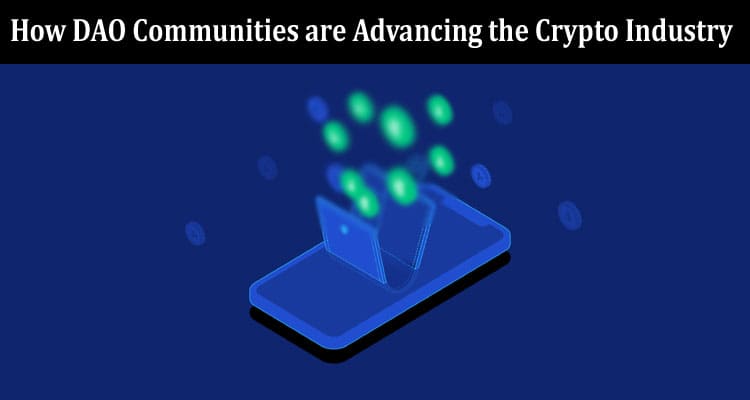You’ve probably heard about a DAO, which stands for Decentralized Autonomous Organization. You may have also heard that DAOs are the future of businesses and communities. But what does this mean? How do they work? And why should you care about them if you’re not an entrepreneur? In this post, we’ll answer all of these questions and more!
Decentralized Autonomous Organizations
DAO stands for Decentralized Autonomous Organization. DAOs are a new type of organization that uses blockchain technology to operate. They are similar to open-source software projects, but instead of being owned by an individual or company, they’re owned by all the people involved in creating and maintaining the project. A DAO is autonomous because it runs on rules encrypted into its computer code and doesn’t need humans to manage it or make decisions on its behalf; instead, all critical decisions are made by consensus among its human members using smart contracts that run on top of a blockchain network like Ethereum or Bitcoin. Anyone can create a DAO.
For example: if you want to create an open-source project like Wikipedia or Linux, you can use Ethereum as your platform and create yourself as the founder and project manager. This way, anyone who wants to contribute their time and skills will be able to do so by signing up for roles within the DAO—like editor or writer—and these roles are tracked in real-time by blockchain technology.
Each member will have access to data about how well they did their job each week via smart contracts; this transparency helps them keep track of progress toward meeting goals while allowing everyone else in the community access so they can see how well everyone is doing their jobs.
DAOs Can Fund Projects
The DAO community can decide how to manage the funds and assets in their respective DAOs. This means they control how much money is raised when it is spent, and what projects are funded. This way, DAOs allow individuals to participate actively in a company’s management.
The transparency of the blockchain is another reason why DAOs are so attractive as a way for communities to manage their assets. The blockchain has no central authority; all transactions are recorded on a public ledger that anyone can access and verify at any time. Because every transaction is recorded publicly, there is no need for financial institutions or other third parties to certify transactions—you can look up all transactions ever made on the blockchain yourself.
DAO Crypto Communities
There are many advantages of using DAOs to manage crypto communities compared to traditional companies:
- Decentralized governance. Traditional companies require central authorities, CEOs, CFOs, or even legal entities to manage the business. However, a DAO will use smart contracts to automate management projects through a decentralized voting system. The members can vote on proposals submitted by other community members and decide whether they are worth funding.
- No single point of failure. A DAO will not have any single point of failure because it does not depend on one individual for its survival; instead, it relies on its community members for support and guidance in all aspects of running the organization fairly and efficiently with no bias towards one individual over another.
DAOs can even vote on other organizational decisions, such as which projects to work on next. DAO crypto projects are a great way to organize digital communities of traders and investors to make joint investment decisions or help support a shared stake. The FTT DAO is an excellent example of one of these communities. The FTT DAO is a great resource for anyone learning the ins and outs of crypto, but it also holds many perks for FTT stakeholders who want to profit from the FTX ecosystem and the FTX Token growth. You can learn more about DAOs and join the FTT DAO through FTX.
DAO communities are not the only way to make the crypto industry more inclusive and sustainable. But they have the potential to be one of the most effective ways to bring together people with different interests, skills, and values in a shared mission. They also offer a model for collective decision-making that could be applied elsewhere, including corporate governance and politics.


